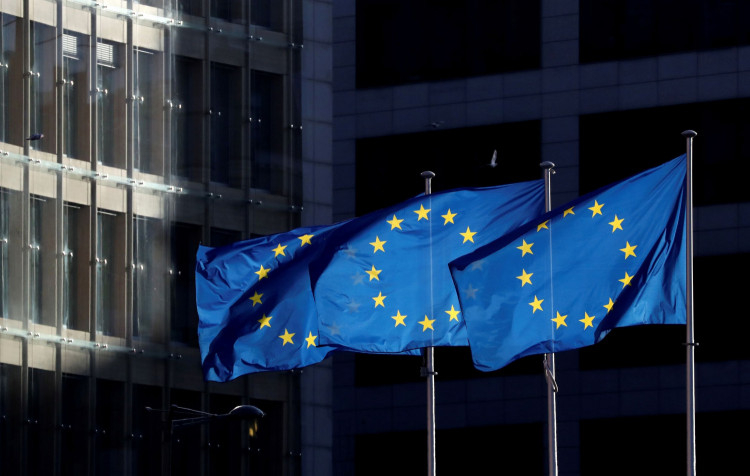The Eurozone witnessed an economic uptick in the second quarter of the year, fueled by the decline in energy prices which provided relief for household budgets.
Data published by the European Union's statistical office on July 31st showed that the Eurozone's GDP for Q2 grew by 0.3% quarter-on-quarter, surpassing analyst forecasts of a 0.2% increase. This growth marked a reversal from Q1's slight contraction of 0.1%. Compared to the previous quarter, the GDP across EU nations remained relatively stable with an initial growth of 0.2%.
These figures bolstered market hopes for a "soft landing" for the Eurozone economy, which had previously set off recession alarm bells in Q1.
Year-on-year, the Q2 GDP in the Eurozone, adjusted for seasonal factors, showed an initial growth of 0.6%, higher than the predicted 0.5%. The Q1 GDP growth rate for EU nations was at 0.5%. The year-on-year growth rates for both the Eurozone and the EU were revised upwards to 1.1% for the previous quarter.
Country-wise, the higher-than-expected increase in EU GDP was influenced by Ireland's GDP surge of 3.3% quarter-on-quarter. Analysts highlighted, however, that Ireland's GDP has been volatile due to the transfer of intellectual property by American pharmaceutical and tech companies headquartered in Ireland.
Simultaneously, the economies of France and Spain demonstrated resilience in Q2, with France's GDP increasing by 0.5% quarter-on-quarter and Spain's by 0.4%.
Germany, the economic powerhouse of Europe, finally pulled out of recession in Q2. Although Germany's GDP remained flat after seasonal adjustments, lower than the expected growth of 0.1%, data revisions for previous quarters revealed that the economic downturn was smaller than initially anticipated.
However, despite Germany's halt in economic contraction, some analysts argue that the country's economic outlook remains gloomy, pointing to the key Ifo Business Climate Index at a low 87.3 in July, dropping to an eight-month low and below both previous and expected values.
Italy stood out as the worst performer among the major economies in the Eurozone in Q2 2023, with a 0.3% contraction from the previous quarter due to drops in industrial and agricultural outputs that offset slight growth in the service sector. Italy's statistical agency indicated that domestic demand negatively impacted GDP, whereas foreign trade, including tourism, remained neutral.
On July 28th, Christine Lagarde, the president of the European Central Bank, said in an interview with Le Figaro that the Q2 GDP data for France, Germany, and Spain were encouraging and these figures boosted expectations of a 0.9% growth in the Eurozone's GDP this year.
While Q2 GDP for the Eurozone was being announced, July's CPI data for the Eurozone was also released, showing a slowdown in harmonized CPI year-on-year to 5.3%, with stubborn core inflation persisting.
July's data revealed that the Eurozone's energy prices fell 6.1% year-on-year, a greater drop than in June. Inflation rates for food, alcohol, and tobacco also slowed to 10.8%, while the industrial goods inflation rate fell to 5%. However, service prices accelerated, reaching a new high of 5.6%.
On July 27th, the European Central Bank increased its interest rates by 25 basis points as scheduled, indicating a significant shift in its future stance on further interest rate hikes from "ensuring rates reach sufficiently restrictive levels" to "ensuring rates remain at sufficiently restrictive levels for the necessary period," a change the market interpreted as dovish.
During the press conference, Lagarde emphasized that the change in the wording of the statement was not arbitrary or insignificant, expressing an open attitude towards decisions in September and beyond. She suggested that interest rates could either increase or remain stable in September but would not decrease.
At present, economists still predict the European Central Bank will continue to hike rates, although not necessarily in September.
Some economists, including Italian policymakers, recently voiced concerns that the European Central Bank has raised interest rates too much and warned that further hikes could drag Europe into recession. But Lagarde asserted her commitment to "keeping in mind the goal of reducing inflation".
During the interview, Lagarde reiterated her stance on whether to increase interest rates in September - the "policy rate could rise further, or it might not". She added that no matter when, be it September or later, pausing (the rate hikes) is not guaranteed.
"We are in an environment full of uncertainty, and we will reassess the situation and our actions at each meeting," she said. "We are committed to bringing inflation back to the target in a timely manner, for which we need to adopt sufficiently restrictive policies in terms of level and duration."






